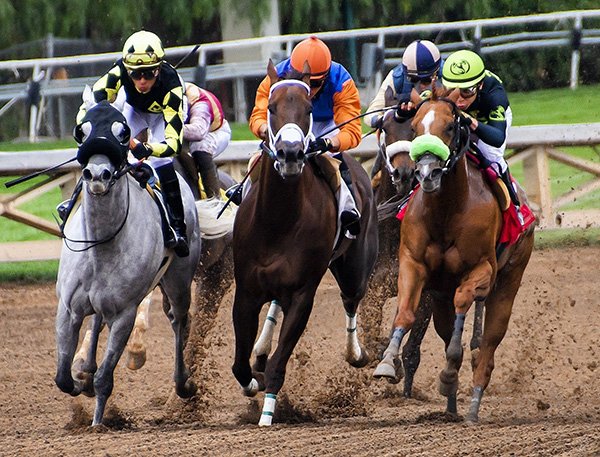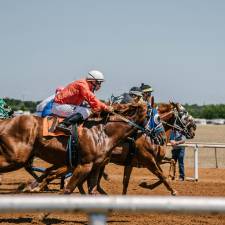
Tennessee is a state with a rich history in horse breeding and racing and is known to have produced some of the finest racing and trotting horses from the 19th century and still today. Yet there have been a number of stumbling blocks along the way that have meant the state has dropped off the map when it comes to professional horse racing, in which Tennessee is currently little know for none over than their fine breeding of horses. After stringent rules have been in place for a number of years, subsequently there’s also been a lack of development of the available facilities to grow their horse racing reputation. So will Tennessee’s horse racing potential ever develop to be more than just potential?
A history of thoroughbred breeding
As a state with a rich plantation history, Tennessee is hope to some of the finest racing and trotting horses in the United States. In fact today, there are more than 3 million acres of farmland in the state that are used for horse rearing and other horse related activities and over 135 equine facilities.
The most popular type of horse to be bred in the state is the Tennessee Walking Horse; a galted horse breed that are known for their four-beat running walk and striding movements that make them so ideal for horse racing. The Tennessee walking horse is also the most popular type of riding horse, thanks to its gentle nature, smooth gaits, calm disposition and stability. Most often used as trail riding horses, this breed is also the most popular type to be featured in television shows and movies.
During the early years of the nineteenth century, more and more farms were breeding thoroughbred horses, from East Tennessee to Memphis, in which the competition was growing. Due to the nature of competition in the area, racing tracks began to pop up frequently with local owners developing rivalries in the east and west of the state. By the third decade, two major race tracks became prominently known; the Nashville Racecourse and the Walnut Course, with a rivalry growing between the owners.
During this time, extravagant campaigns were created in order to advertise the thoroughbred stock to the rest of the country. As the industry grew, locals began to place bets on the horses as they raced, shaping the reputation of Tennessee as the capital for developing fine racing horses.
The crippling Civil War
As the Civil War came about, Tennessee was not so lucky. With a reputation for having the best thoroughbred racing horses in the United States, most of the southern-bred horses were drafted to the war. While Tennessee’s plantation routes served them well up until now, this would be the turning point that crippled the development of Tennessee as a successful horse racing state. Sadly, many of the southern bred horses didn’t make it thorough the war, meaning that once it was over, much of Tennessee had to turn to the less refined northern horses to continue their breeding programmes again.
While horseracing dwindled in Tennessee, horse breeding and racing in the neighbouring state of Kentucky grew tremendously, taking over that of Tennessee.
Rebuilding their reputation after the Civil War
After the civil war had passed, locals in Tennessee began to rebuild their stud farms and horse racing was on the rise again. The state began to build itself up again, with the introduction of roads, new jobs and a new breed of middle class people who were on the lookout to purchase trotting horses. From here, the state was able to begin rebuilding its reputation, with the likes of Belle Meade, Fairview, Hermitage Stud and Ewell farms becoming the most well known.
Laws that have restricted horseracing in Tennessee
Surprisingly for its rich history in thoroughbred breeding, a legislature has stood in Tennessee since 1905 that has prohibited horseracing betting activity of any kind. The legislation was lifted in 1987, leading to the creation of the Tennessee State Racing Commission who were put in place to formalise and control all forms of horseracing in the state, Sadly, after running into a number of stumbling blocks and local protests, the commission disbanded and horseracing activity once again dwindled.
Horseracing today
With online sports wagering being legalised in Tennessee as of November 2020, the advisory committee is now hoping that this will encourage a new era of horseracing in the state, which could lead to the development of an official racetrack.
Today, there are several under the radar racetracks that are actively used, with activity being promoted on various Facebook threads. Referred to by locals as the ‘outlaw track’ the Carril del Memphis racetrack hosts regular and fairly successful races, although it seems that the longstanding legislature has done quite some damage to the reputation of Tennessee.
Overall, Tennessee was once and still is today, one of the most respected and well-known states for thoroughbred horse breeding. With a rich plantation history, the state was set to stand in good steed to become a horseracing champion, yet there have been a number of events that have thrown them off course. From the civil was, to the banning of horseracing betting which stripped the industry of essential funding, there’s no doubt the Tennessee horseracing has some catching up to do, yet the introduction of online betting could be the saviour the state needs to get back on track.
There are more articles in our section on Horse Racing.













